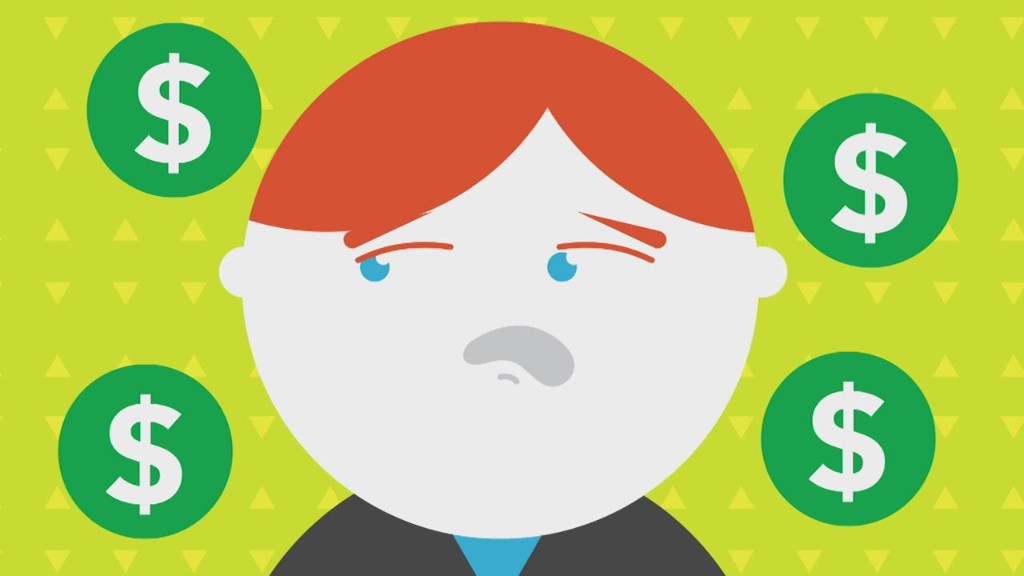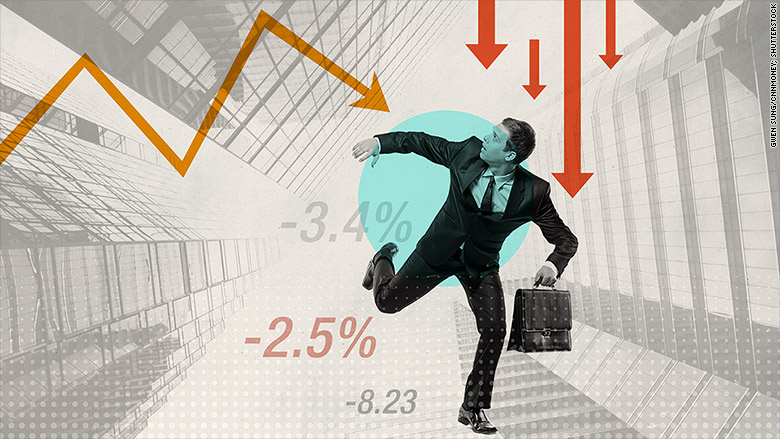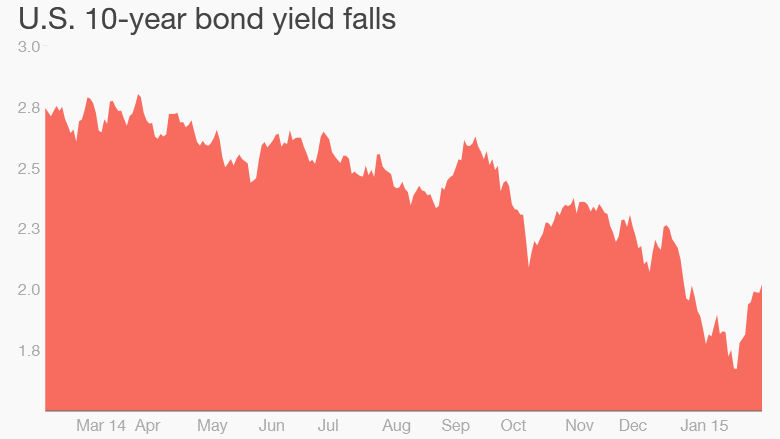
Six years into the bull market in stocks and there's no shortage of scary things on investors' worry list.
From Vladimir Putin and Greece to the dramatic plunge in oil prices, something is bound to trip up the stock market, right? After all, the good times on Wall Street can't last forever.
But the key to knowing where stocks are going next is focusing on the real risks to the market, not the irrational ones.
Fear a bubble in bonds, not stocks: Yes, stocks are up over 200% since the 2009 lows. And yes, the Dow is once again trading above 18,000 and the S&P 500 just hit a new record.
But stocks are barely positive on the year. Valuations look a bit lofty, but not insanely high. There are good reasons for stocks to be up: The U.S. economy is humming along, the jobs market is finally looking strong and corporate profits continue to smash records.

Related: Greed is back! Stocks at all-time highs
It's much tougher to justify what's going on in the bond market. The yield on the 10-year Treasury isn't far from an all-time low. That usually happens during times of market stress, not when stocks are soaring.
It's even stranger abroad. The yield on 10-year bonds from Portugal -- a country rumored to be on its way out of the eurozone not long ago -- tumbled to a record low of 2.3% last week. That's down from a whopping 16% in 2012.
Yields have actually tumbled into negative territory in Belgium, Denmark, France, Japan, the Netherlands and Switzerland. Think about that. Investors are basically willing to lose money when they buy these government bonds. And even some corporate bonds, too.
Given the low levels of liquidity in the bond market, it's scary to think about what happens when the bond bubble eventually pops.

Related: So much for the bond bubble bursting
Fear reluctant consumers, not tumbling oil prices: The crash in crude prices has spooked investors worried about how it'll impact corporate profits and what it says about the health of the global economy.
While those are valid concerns, there is mounting evidence the plunge in oil prices is mostly being caused by too much supply, not a sharp decline in demand. And while energy profits are shrinking big time, the consensus is that cheap oil is a net positive for the U.S. economy.
What's really needed is for American consumers to feel confident enough to spend the estimated $750 they're saving on gas this year, not just save it or pay down debt. That's critical because consumer spending accounts for two-thirds of the U.S. economy.
Yet retail sales in January crept up just 0.2% from December, even after excluding auto and gasoline sales. Spending actually decreased on items like furniture, clothing and sporting goods.
That needs to change for the economy to kick into a higher gear.
Related: The stock market needs American spending
Fear the Fed doesn't raise rates, not a June hike: After six years of emergency care from the Federal Reserve, the U.S. economy finally looks healthy enough to stand on its own two feet.
No, it's not in perfect shape. Inflation is still running well below the Fed's 2% target. Wage growth remains a sore point for American workers.
But it would be scarier for investors if the Fed doesn't ultimately raise rates later this year. It would raise questions about whether the central bank has boxed itself into a corner with low rates and leave Fed Chair Janet Yellen and her committee with fewer tools to respond to future shocks.
If the Fed waits too long to raise rates it also risks inflating another asset bubble just like 10 years ago when cheap credit fueled the housing bubble.
Related: Making money as the Fed hikes won't be easy
Fear Europe's future, not the current Greek drama: Investors freaked out earlier this year when Greece elected the anti-austerity Syriza party. The stock market in Athens plummeted and Alan Greenspan predicted the euro's demise as talks over a revamped Greek bailout stumbled.
But the real fear shouldn't be about Greece. It does seem likely the new government will eventually reach a deal with Greece's creditors.
The bigger question mark is whether leaders in Europe will get their act together fix the continent's sleepy economy for the long run.
Not only must the European Central Bank carry out its promise to stimulate the economy through bond purchases, but national leaders have to do their part, too. They need to push through politically painful economic reforms to drive future growth.
Related: Europe is a mess. Should Americans buy now?
Bottom line: Most experts still believe the U.S. stock market will rise in 2015. But with the major averages at or near record highs, it's hard to blame investors for closely scrutinizing the health of the global economy before jumping in to buy more stocks.


